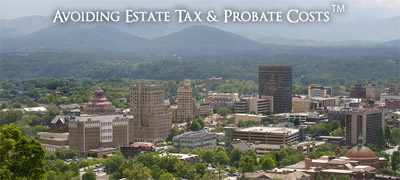Straight forward answers to questions clients have frequently asked over the years:
What is Estate Planning?
Estate Planning is where an experienced Estate Planning Attorney gets to know you and understands your family and loved ones and then designs a “Customized Protection Estate Plan™” through their Unique Process. Our Unique Process is called “The Customized Protection Estate Planning Solution™”.
Estate Planning is where you legally plan for and decide what happens if you get sick, become mentally disabled, what happens when the first of a married couple passes on, and then what happens after you are deceased. This is where your assets are used for you while you are alive and where what you own goes after you pass on.
What is a Will?
A Will is a legal document. There are specific requirements for Wills in each State. For example, if you had a Will done in the State of Michigan, it may not work in the State of North Carolina.
A Will is a legal document that says what happens to your assets once you are deceased. It does nothing for Mental Disability, and does not have any effect until you are deceased.
A Will HAS TO go through Probate Court. It does not avoid Probate Court, but it GUARANTEES that your assets go through Probate Court.
What is Probate Court?
Probate Court is a court system in each County in the State of North Carolina. It is where your assets go after you are deceased if you died with a Will or if you don’t use a Will (see exceptions below). It is the controlling Court of where your assets go after you are deceased.
The Probate Court is normally located where you resided at the time you died.
What is the downside of Probate Court?
Public: Everything in Probate Court is public record. Any person can go into the Probate Court and look and see the terms of your Will, what your assets are, who they go to, and who is in charge of your Will.
Time: The average time in the State of North Carolina is often 18 – 24 months from the time you put the Will into the Probate Court until the Court authorizes the closing of the Probate and the Assets are moved out.
Costs: Court costs are normally 4% of the value of your personal property moving through the Probate. That cost is capped at $6,000.00. That is up to $6,000.00 per person, or $12,000.00 per couple. That number can be moved up at any time by the North Carolina legislature. Again, Court costs are primarily a tax. They also include filing fees on top of the 4% tax.
Administrative Fees: Administrative fees are in addition to Court Costs and can be 5%- 7% of the value of the Probate Estate. So if there is a Probate Estate of $1 million – the administrative fees can be $50,000 to $70,000. Often the Administrative fees go to the lawyer handling the Probate.
What is a Will Caveat?
A Will Caveat is a lawsuit in Court where someone is attempting to knock your Will out and have it invalidated. Often it is a Jury Trial. The attorney fees for all the attorneys defending and attacking your Estate are paid out of your assets. In other words it’s a free lawsuit to try and set aside your intentions under your Will.
What if there is no Will?
If there is no Will, or no valid Will, then your assets move by the State’s laws of Intestate Succession. These are laws that set out how your property is divided based upon your bloodlines. It is not based upon your intentions, or your personal relationships in any form or fashion. What you own goes to relatives – whether you even know or like them.
What is a Power of Attorney?
A Power of Attorney is a legal document authorizing someone to handle your financial affairs on your behalf. It can be limited or unlimited as to any transactions. It can survive your Mental Incapacity. It can control all of your assets and does not leave any instructions as to how the assets are to be used, or any requirements for how your assets are used. Financial Power of Attorneys can be easily abused.
Power of Attorneys are often State specific and may not work in another State.
The Financial Power of Attorney ends when you die. If someone is handling your financial affairs before you die, that Power of Attorney authority dies with you.
What is a Testamentary Trust?
A Testamentary Trust is a Trust under a Will. It still runs through Probate Court as described above. It also may require ongoing management by the Court under the terms of the Testamentary Trust.
What is a Living Trust, Revocable Living Trust, or Family Trust?
A Living Trust, Revocable Living Trust, or Family Trust are names normally used for the same legal vehicle. The Living Trust can skip Probate Court, but: (1) only if that Trust is properly written, (2) assets are titled to the name of that Trust, and (3) the Trust is properly administered. If so, then those assets titled to the Trust can skip Probate Court.
Such a Trust can also be modified in whole or in part.
If your assets are not titled to that Trust then they do not skip Probate Court. They go through the expense, delay and publicity of Probate Court even if you have a Trust.
In other words, if a Revocable Living Trust, aka Living Trust, aka Family Trust is created by an experienced Estate Planning Attorney on your behalf, but if your home, bank accounts, investment accounts, motor vehicles, and all of your other assets with titles are NOT TITLED into the name of that Trust, those assets will run through Probate Court, if they are titled in your name.
What is a “Bare Bones” Trust?
A “Bare Bones” Trust is a Trust that does not provide much, if any, protection. There is no real Mental Disability Planning. There is no Protection for the surviving spouse of a married couple. There is no Tax Planning. There is rarely any protection for your adult children or other loved ones who are your beneficiaries.
So, why would anyone create or use one of these for their clients? These are sometimes created by ‘Trust Mills” – banks or lawfirms and even financial representatives who just use a template, replace the names and create this type of document for the sole purpose of skipping probate. Unfortunately, since it provides no real protection, these are very limited. Be wary of these kinds of templated documents.
What is a “Customized Protective Estate Plan™”?
A “Customized Protective Estate Plan™” is the end result of our unique process “The Customized Protective Estate Plan Solution™”. The end result of this unique client focused process is our client’s “Customized Protective Estate Plan™” which is specifically designed so that it fits you and your loved ones unique situation. This will include providing Mental Disability Planning. We provide protective planning for the surviving spouse, if you are a married couple. Planning can include Remarriage Protection, in the event your spouse remarries after you pass on, so that your assets go to your family and loved ones, as opposed to the replacement spouse’s family.
There can also be Estate Tax Planning. There can be added protection for your adult children or other beneficiaries. This protection could help your adult children in the event they become divorced, or are sued in a car wreck lawsuit, or if they might squander the inheritance.
What is a fully funded Trust?
That is a Living Trust where your assets with titles, such as your residence, your bank accounts, your investment accounts, your motor vehicles, and other assets that have titles, have been titled into the name of your Living Trust.
If all assets are titled in the Trust, your Estate Plan assets can skip Probate Court.
What is a Pour-Over Will?
A Pour-Over Will is normally done as an additional legal vehicle along with your Revocable Living Trust, aka Living Trust, aka Family Trust. This is a “legal pooper scooper”. This is in case you forget to title an asset into the name of your Revocable Living Trust. Whatever that asset is that you forgot to title into your Revocable Living Trust would still need to go through the publicity, delay and costs of Probate Court. Thereafter that asset would move under the terms of your Living Trust.
What is a Living Will?
A Living Will is a healthcare legal authority, you do while healthy, that gives “your consent” to removing you from life support equipment in the event you are terminal and incurable, or you are in a persistent vegetative state and are not coming back. In that case you are asking that extraordinary life prolonging measures not be continued. This would normally involve taking you off of a ventilator which is breathing for you in a case where you cannot breathe on your own. It is normally used in dire circumstances and does not authorize having someone terminate your life. It just takes you off the ventilator or other extraordinary measures under certain circumstances. Again this is set up under the terms that you are terminal, death is imminent or you are in a persistent vegetative state and you are not going to get better. This is something that is done with “your consent”. It states your desires if this happens. This does not authorize someone else to take action on your behalf, but acknowledge your desires.
What is a Healthcare Power of Attorney?
A Healthcare Power of Attorney is a legal authority authorizing someone to make decisions on your behalf, when you cannot. When you have medical treatment the doctors want to make sure that you have “informed consent”. This means that they have spoken with you and that you know and understand the risk of the treatment and agree to have the treatment. If you are unconscious and unable to give your consent, the Healthcare Power of Attorney Agent who you have chosen is authorized to grant that consent on your behalf.
What is a Healthcare Designation, aka HIPPA?
Healthcare Designation, aka HIPPA, authorizes the release of medical information to people that you list. This is different than the Healthcare Power of Attorney in that they are not authorized to authorize medical treatment, but only to have access to medical information. It may mean that they have access to your medical records.
Why it’s important that Healthcare Powers of Attorney, Living Will and Healthcare Designation, aka HIPPA cross state lines?
Here in Western North Carolina (unless you are traveling due East), in an hour and a half of driving, you are in another state. You may be in another state when you become sick, or are injured in an automobile accident. That is why you want your Healthcare Power of Attorney, Living Will and Healthcare Designation, aka HIPPA to be able to cross state lines and work in another state. Healthcare documents that are very state specific, such as “state versions” that refer to North Carolina General Statutes may not work well in another state. The physicians may take the position that you are not in North Carolina and therefore your healthcare documents do not authorize your agent to authorize treatment.
Are the Estate Planning documents State specific?
Wills and many estate planning documents maybe state specific and may not work in another state. Each state has their own legal requirements that will often have something to do with the witnessing or notarization of the legal documents. They may also have specific language for each specific state. If you do not have the proper language in that specific state, your Will may not work.
If you have a Will done in another state it may not work in the State of North Carolina. If you do have an out-of-state legal Estate Plan, you need to have an experienced North Carolina Estate Planning Attorney review those documents.
How often should your Estate Plan be reviewed?
Three things are always changing in Estate Planning: (1) the law; (2) what you own; and (3) your relationships. We’ve explained this in detail in this blog – “…Cha, Cha, Changes Along the Way“
The Tax Laws will change regularly and each state has their own laws regarding Estate Planning.
What you own may change as you may be in a different residence, have a different motor vehicle, have a different bank, or have your investments held at a different place.
Your relationships will change as your children may marry and divorce, your close friend, or relative, who was going to assist you in your Estate Plan is no longer able to do so, or that relationship has faded.
You should have your Estate Plan reviewed with an experienced Estate Planning Attorney at least every four (4) years. That is even if you live in the same State, own the same residence, have the same financial accounts, investment accounts and own the same motor vehicles and other titled assets and your relationships have not change. Again, the law can change and often does both Federally and Statewide based upon the outcomes of elections.
What is Medicaid or Nursing Home Planning?
Medicaid or Nursing Home Planning is when you are concerned that you or your loved one may need skilled care nursing. Skilled care nursing looks like you are in a hospital or you are in a Nursing Home and most of the time you are staying in a room that looks like a hospital room with a hospital bed. Most times the people who reside in a Skilled Care Facility (nursing home) are not ambulatory so they cannot walk. They are either in the hospital bed or they are in a wheelchair. They may also be mentally disabled to the point that they cannot handle their affairs.
Skilled care nursing homes at the current time can cost $7,000.00 to $8,000.00 a month and up in North Carolina. This means that you could easily run through a $100,000.00 or more a year on the nursing home expenses.
Medicaid planning is done with a goal to leave some inheritance to your loved ones and still qualify for skilled care nursing home expense to be covered by Medicaid and paid for by the government.
What is Asset Protection Planning?
Asset Protection Planning is where you are trying to preserve your assets from being collected upon from a lawsuit judgement. People who do Asset Protection Planning include business owners or professionals that want to separate their business liability from their personal assets. This could also include someone who owns a rental home. You are trying to protect your personal assets from the liability of a tenant who in the event the tenant falls in the bathtub or on the stairs and sues you.
There is more detailed information on our webpage regarding Asset Protection – Visit our Lawsuit Protection/Asset Protection page on this website.
What is a Memorandum of Personal Property?
Your Trust may refer to a Memorandum of Personal Property to be incorporated into the Trust that will list specific personal items to go to specific people upon your passing on.
What is a Death Beneficiary?
The Death Beneficiary is who you name on a contract who becomes the owner of that asset after you pass on. Most commonly this is where you name a Death Beneficiary on a Life Insurance Policy or a Retirement Account. Now in North Carolina certain accounts, at a bank or an investment account, can be “Payable on Death” or “Transfer on Death” to the named individual.
You can skip Probate Court by using this method. However, there is no protection for that asset moving to your loved one, in the event of a divorce, car wreck lawsuit or squander.
You also want to make sure that you have current and up-to-date Death Beneficiaries named on your Life Insurance, Annuities, Certificates of Deposit at a bank, and Retirement Accounts. Often people will have a former relationship, such as their ex-spouse, listed as a Death Beneficiary. That will be controlling even if you are divorced from that person and remarry another person. It will be paid out to the person you have listed as your Death Beneficiary.
What is Jointly Owned Property?
Land or joint accounts can be held in joint names. If they are “Tenants in Common” it is like you and a sibling own an account. Each of you own one-half of that account and one-half of that account would move into your Probate Estate when you pass on. (Each of you may be able to move 100% of a joint bank account.)
If the land or an account is “Joint with Right of Survivor” then that land or account will go totally to the other person when you pass on. This is often how married couples own an asset. The down-side is that there is no protection for the person inheriting the asset from squander, divorce or a car wreck lawsuit. Also, if you were killed in a common car accident the asset will end up running through Probate Court.
If you put the land or an account in joint names with an adult child, then your assets are subject to the liability of that adult child. In other words, if you put your adult daughter’s name on your bank account, and then she is sued in divorce court, that bank account could be pulled into Divorce Court and subject to the Divorce Court’s ruling as part of the division of marital property during the divorce.
“The Legacy You Leave™”
We have answered a number of questions along these lines in our helpful booklet titled “The Legacy You Leave™”. This is a booklet that I have written that answers common questions that I have received from clients over time. Also, it tells stories of situations that clients have experienced to help you understand how Estate Planning works. You can come by our office to pick up a copy of that booklet or read more about it here. I have tried to make it as simple to understand as possible and it’s only 40 odd pages, so it is pretty quick reading.







